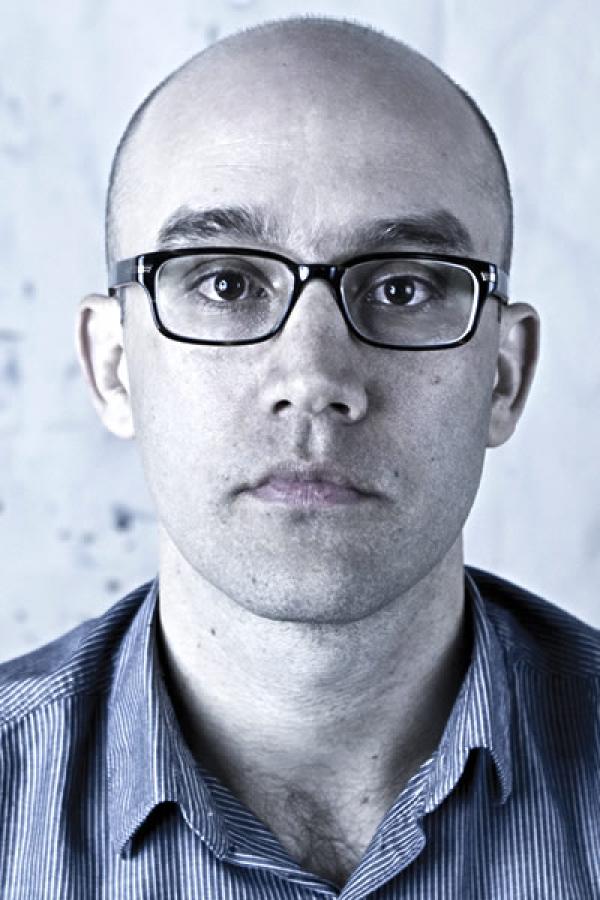Matthew Reeck

Photo © Dan Wonderly
Bio
Matt Reeck has won fellowships from the Fulbright Foundation, the American Institute of Indian Studies, and the PEN Foundation. Bombay Stories, his translations with Aftab Ahmad from the Urdu of Saadat Hasan Manto, will be published in 2012 (Random House). His poetry has been published in a variety of magazines, including American Letters & Commentary, Aufgabe, Bombay Gin, Brooklyn Rail, Colorado Review, Columbia Poetry Review, Denver Quarterly, Fact-Simile, First Intensity, Forklift, Ohio, No Dear, Quarter After Eight, They Are Flying Planes, Tight, Jacket2, and forthcoming in Interim and Verse. His poetry won the 2010 BOMB magazine poetry contest judged by Susan Howe, and his poems are included in the Ashahta Press anthology The Arcadia Project. He is the co-editor of Staging Ground, a new magazine of poetry and art.
Translator's Statement
Translation may be the most important form of cultural exchange today, and I say that quite earnestly. In a globalized world, while we know more about many parts of the world that we didn't have access to previously, often what we know seems to get cemented quickly into easy stereotypes. Then, in a way, we don't know much more at all; we just know what we think we know.
Translation is one place where a simplified global world can give way to a global world in all its richness. This version of the world is as exciting as it is chaotic. It asks us to go beyond our firmly ingrained sense of the familiar to encounter nuances in the human experience that remain foreign to us. It asks us to embark on a constant path of learning, curiosity, and -- dare I say it -- humility.
For a translator, the text itself is the most important thing. This fellowship means that, with a little more luck, The House will be soon available to U.S. readers. This in turn means that its depiction of the human experience -- located on the global GPS as mid '80s Delhi, India -- will reach new people. And this, then, means that we may be able to better understand each other. Perhaps this is one goal of all reading.
from The House by Paigham Afaqui
Chapter 1
It was a serious problem. Neera's house was in danger. Kumar, her renter, wanted to take over the house for himself. Up till then she'd loved living there. She lived with her mother, and the house's other half was rented cheaply to Kumar. Neera was going to medical school, and after graduating she hoped to turn the house into a nursing home.
Neera's house was in the middle of the city, and as the city grew the value of her house increased by leaps and bounds. Neera often thought about the house's rising value and let herself fantasize about all sorts of plans for the future. But one day she sensed Kumar's attitude was changing and like other renters he wasn't going to leave unless she paid him to, and her spirits sank precipitously. Several days later she realized that Kumar wanted to put his hidden resources to work, then gobble up the entire house for himself, and so she began to worry. And when she tried to stop him, when she sought help from others, she saw the changed expressions on everyone's faces, and how the color and cast of everything had begun to change as well. Her present reality took on the feel of a dream, and it seemed like her house's roof had risen high into the sky and its walls had receded to the horizon. But not just that. What had up till then been the smallest, most obvious things suddenly appeared full of untold dimensions. The calendar on the wall seemed like a holy book that transcended time and space, and an ordinary stool seemed thousands of years old. It was as though all of this was from an ancient time and had roots stretching deeply into the past.
Whatever I thought my house was, it isn't that anymore, and now its new reality is all I see. I must run through it, touch it, explore the infinite distances between its walls, I must experience it anew. Even though she lived in the bustling city, she felt alone, and this terrified her. This house is infinite and mysterious. If this had been an illusion or a waking dream, she would have shaken herself free, but it wasn't. This was the new world she was faced with.
About Paigham Afaqui
The House won Paigham Afaqui several prizes and represents his first major literary work. His literary and professional life has been focused on exposing corruption in Indian society, most notably within organs of state power. A deep humanism resonates in his oeuvre. His books represent a critique of the institutions set up to safeguard the rights of the underprivileged and oppressed, and they champion the underdog.

